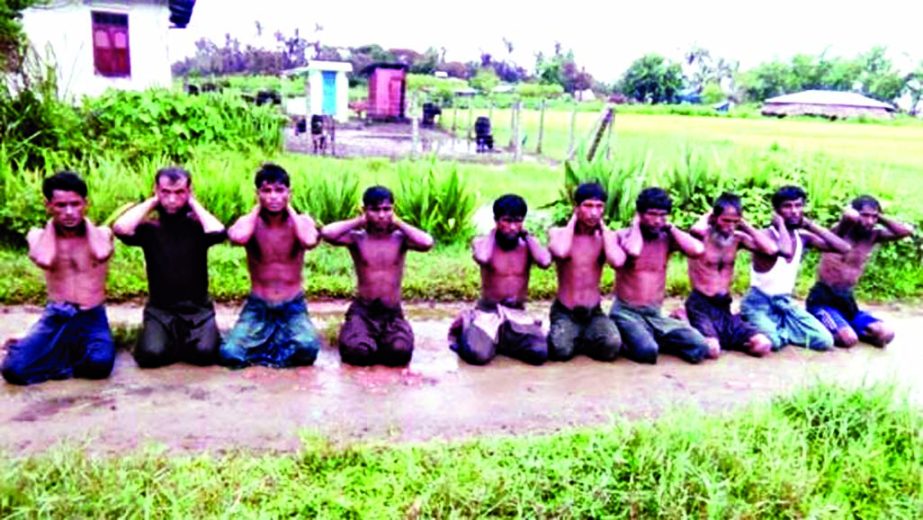
The United Nations has described the latest report by a news agency on the killing of Rohingya Muslims in Myanmar as very alarming.
“We’re aware of this latest report, the details of which are very alarming,” Deputy Spokesman for the UN Secretary General Farhan Haq told reporters in regular briefing at the UN on Friday.
He said, the findings of the report once more attest to the need for a full and thorough investigation by the authorities of all violence in Rakhine State and attacks on the various communities there.
“And, of course, the Secretary-General, as you know, has called for the release of the two detained journalists and we continue to press for that,” said the Deputy Spokesman.
Reuters has reported that in September last year, Buddhist villagers and Myanmar troops were responsible for killing 10 Rohingya men and burying them all in the same grave.
The number of Rohingya arrivals from Myanmar to Bangladesh since August 25 last year now stands over 688,000, indicating that Rohingyas are still coming despite a repatriation plan is in progress between the two countries. British Foreign Secretary Boris Johnson, now on a two-day visit here, on Friday said the plight of the Rohingya and the suffering they have had to endure is one of the most shocking humanitarian disasters of their time.
“This is a man-made tragedy that could be resolved with the right political will, tolerance and cooperation from all those involved,” he said.
The British Foreign Secretary visited Rohingya camp in Kutupalong on Saturday morning and saw and heard for himself the terrible things these people have been through.
He will be talking to State Counsellor Aung San Suu Kyi and other regional leaders about how they can work together to resolve this appalling crisis.
On Thursday night, Myanmar Ambassador in Dhaka Lwin Oo said they are working actively with Bangladesh on the voluntary, safe and dignified return of Rohingyas to their homeland from Bangladesh with a good neighbourly spirit.
“The disputes that emerge between neighbouring countries must be resolved amicably through bilateral negotiations,” the envoy said. The Myanmar envoy said terrorism and extremism constitute one of the most serious threats to civilized world. “We can’t condone terrorism in any form and manifestation.”
He claimed that men from the villages in Rakhine State were recruited to join the terrorists and militants in fighting the security forces. “Myanmar and Bangladesh jointly can be a bridge between South and Southeast Asia,” said the Ambassador.
He said air, land and sea connectivity between the two countries can play an important role in increasingly globalised world to create favourable conditions for better understanding among the people and nations in the region. “I hope that the friendly relations and cooperation between Bangladesh and Myanmar would continue to grow in the days to come,” said the Ambassador.
On January 16, Bangladesh and Myanmar signed a document on ‘Physical Arrangement’ which will facilitate return of Rohingays to their homeland from Bangladesh.
The ‘Physical Arrangement’ stipulates that the repatriation will be completed preferably within two years from the commencement of the repatriation.

